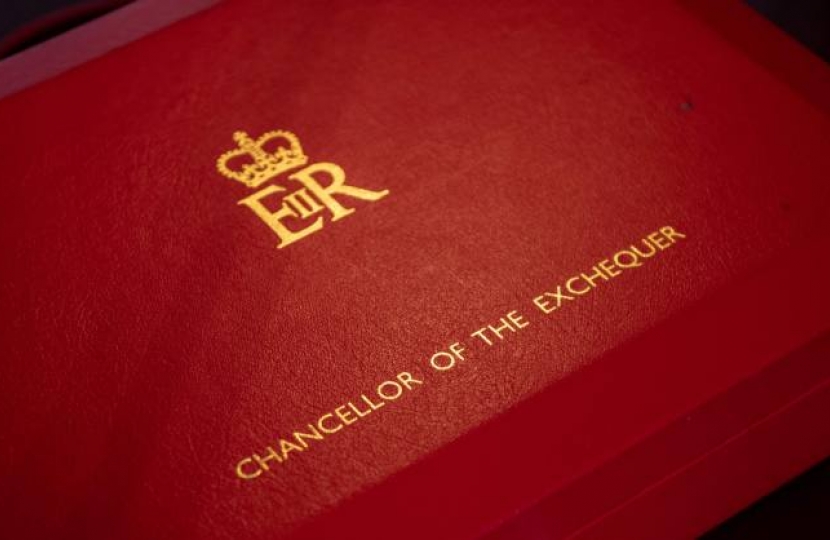
On Monday 29th October, Chancellor Phillip Hammond delivered his final Budget before the UK’s departure from the EU in March.
Amongst a range of funding announcements and measures, he commended my suggestion to resist lobbying to lower the threshold at which businesses have to pay VAT on all of their taxable income. Currently, when a business generates more than £85,000 in taxable income, it must register to have all of this income subject to VAT. This means that the threshold acts as a cliff edge beyond which income drops dramatically because of large payments to the Treasury. The knock-on effect of this is that businesses like hotels often close for periods in the winter to avoid going over the threshold and making a loss.
The Chancellor has been subject to lobbying urging him to drop this threshold dramatically, bringing the cliff edge closer to the incomes of many small businesses. But he commended me and the Federation for Small Business (FSB) for making the business-friendly case against this move and announced that the threshold would be frozen and protected against reductions for two years. Personally I would like to see the cliff edged addressed in a way that removes it altogether or raises it but this is an encouraging announcement given vocal support for a lowered cliff edge.
Other key measures in the Budget included an additional £400 million for schools (though I will certainly be lobbying for this figure to be built on in the future), £20.5 billion for the NHS, £28.8 billion for the improvement of major roads, £200 million for the continued full fibre broadband rollout and £1.7 billion more being committed to the rollout of Universal Credit every year. The raising of the tax free allowance to £12,500 and high rate income tax threshold to £50,000 have also been brought forward a year and the National Living Wage will rise to £8.21.
These announcements were against the backdrop of upwardly revised growth forecasts and employment forecasts, with 800,000 more jobs in 2023 than previously predicted. The Government’s borrowing target has been met three years early and the national debt was forecast to fall as a percentage of GDP in each of the next five years, meaning the Government has also met its debt target three years early.
Overall, it was a positive and forward thinking Budget. I particularly welcome the additional funding to public services, notably the reaffirmation of £20.5 billion additional NHS funding in real terms by 2023/24 and £200 million for full fibre broadband rollouts. I am glad that schools have received £400 million in additional funding but believe that this figure could have been higher and will be lobbying for more rises. Having expressed concerns to the Department for Work and Pensions, I was also happy to see action on Universal Credit, with an additional £1.7 billion a year being committed to make this important reform work.
This was a Budget for working people, with the National Living Wage raised to £8.21, business rate bills cut by a third and a 2% Digital Services Tax being introduced to ensure that major online companies finally start to foot a fair share of our tax bill. At the same time, taxes on hardworking people are being lowered and funding on public services is going up.
I am also delighted that the Chancellor has paid heed to the common sense case against lowering the VAT registration threshold for businesses. This would simply make small businesses rein in their operations at an even earlier stage in order to avoid the tax cliff edge – meaning lower output and productivity with no tangible benefit to the Treasury. I hope that the VAT registration cliff edge can be addressed more substantively in the future.
The Chancellor has always acted in businesses’ interests and I think he recognised the strength of feeling about this issue after the submissions that myself and the FSB made to him before the Budget. Our threshold is high by European standards but I think that we should celebrate and protect that rather than harming British businesses for the sake of falling into line with overly stringent thresholds elsewhere.
I was glad to play a small role in an economic plan that will be to the benefit of businesses in Worcestershire and across the country.
